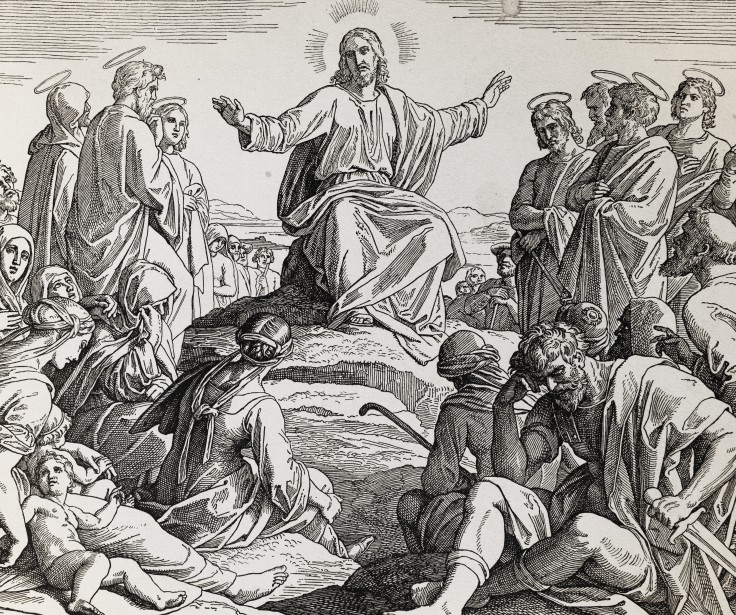“And he goeth up into a mountain, and calleth unto him whom he would; and they came to him. And he ordained twelve, that they should be with him, and that he might send them forth to preach, And to have power to heal sicknesses, and to cast out devils” (KJV, Mark 3:13-15).
Toward the beginning of Mark’s Gospel, Jesus is pictured as calling out the twelve to Himself and commissioning them for ministry. But what are some of the facets of this event that are presented in the Biblical narrative, and why are they important for us today? Why don’t we take a look at Mark 3:13-15 in order to find out more?
“And he goeth up into a mountain”
As the first verse begins, we catch a glimpse of Jesus’ ascending the slope of a mountain. Jesus was accustomed to climbing mountains to either get away from the crowds or speak to the crowds. The entire Sermon on the Mount was literally done from a mount. We can also see that in Mark 6:46, Jesus retreated to the mountains to pray to His Father.
The mountains that are referenced in Mark 6:46 are most likely the same mountains that are being spoken of in Mark 3:13. The east side of the Sea of Galilee is full of hills that eventually level out. It is likely that Jesus climbed one of these slopes to get to its peak in order to call out to the crowds below.
“and calleth unto him whom he would”
Here, we can see Jesus calling out to the crowds. The wording is interesting and should be noted. It is said that Jesus calls to Himself those “whom he would,” or those whom He desires. A major point that must be recognized among Christians is that God is sovereign.
But what does “sovereign” mean? It means that God is in absolute control of all the events of existence. God is the ruler of all things, and everything goes according to God’s sovereign plan. This is true of salvation, as well. Jesus called to Himself those whom He would.
The Greek word that is used in this verse to denote calling is proskaleomai and speaks of someone’s calling another to himself, bidding one to come, summoning, or inviting.
It is used in Acts 2:39, when the Scripture says, “For the promise is unto you, and to your children, and to all that are afar off, even as many as the Lord our God shall call” (Acts 2:39) .
It is also used in Acts 13:2, when the Scripture says, “As they ministered to the Lord, and fasted, the Holy Ghost said, Separate me Barnabas and Saul for the work whereunto I have called them” (Acts 13:2). Being called is an invitation from God to come to God, to be commissioned for the Lord’s work, to be with God, and to be sent out by God. Why don’t we see how these elements of God’s calling play out in the verse at hand?
“and they came to him”
First, we can see that Jesus called the twelve, and “they came to him.” Here is an essential part of God’s calling. An essential component at hand is the response of the individual. Jesus called, and the twelve came to Jesus. It could rightly be said that when Jesus called the twelve, the calling was irresistible in its essence and force. Nevertheless, the response of man must be highlighted.
When Jesus calls, man must respond to the calling of Christ. Jesus is bidding that people would come to Him and bow the knee in humble submission. Jesus is crying out to the people of the earth and telling them that they are steeped in sin and steeped in guilt, and there is no other way to come to the Father except through the work of Christ and the person of Christ.
“And he ordained twelve”
When the twelve came to Jesus and responded to His call, the calling of God took on its next form. The apostles were then ordained by God. It could also be said that Jesus appointed the twelve.
Either way one looks at it, the same message shines through. It was at this point that the disciples became apostles. The disciples whom were deemed apostles in Mark 3:13-15 were at the same time commissioned for ministry.
Prior to Mark 3:13-15, there were many who were deemed disciples. However, none were deemed apostles. There is a great difference in the Gospel accounts between the two. Many of the disciples that are spoken of in the Scriptures leave Jesus. Nevertheless, it is the twelve that stuck by Christ in the midst of much adversity.

“that they should be with him”
Next, we can see that God’s calling is not simply about doing the work of God, but it is also about being with God. God has called us to Himself, and this is the greatest truth of the whole of Scripture. God does not simply call people to forgiveness. God does not simply call people to work for Him.
God calls people to be with Him. This single truth, of God’s calling people to be with Him, contains the great truths of the Bible.
God has justified the believer, thereby declaring him righteous. God has reconciled the believer to Himself. God has adopted the believer, and the believer now has the privilege of calling God, “Father.” Simply put, God has called the believer to be with Him, and God has done what needed to be done to make His calling certain and effectual.
“and that he might send them forth to preach”
Finally, we see one of the ministries of the apostles. The apostles were sent out to preach. It is important to know that the Bible speaks of apostles in both a strict sense and a broad sense. The only apostles in the strict sense of the word who have ever lived are the twelve, Paul, and Matthias.
One of the defining marks of apostleship was that an apostle had to be with Christ during Christ’s ministerial life (Paul was the exception and one untimely born). The apostle also had to witness the resurrection of Jesus. Finally, as we will see, an apostle’s ministry was accompanied by signs and wonders.
However, the word apostle merely means “sent out one.” In this broad sense of the word, it could be said that many Christians nowadays are apostles. But if one uses the word today, “apostle” may communicate ineffectively what is really being intended, as people may hear this word and think of one of the twelve or Paul.
“And to have power to heal sicknesses, and to cast out devils”
As we get to the end of our passage for the day, we can see that Jesus gave the apostles the ability to heal the sick and cast out demons. But why did Jesus do such a thing? While Jesus did, in fact, love the people and healed many Himself, there was more at stake than compassion for the sick.
The Bible explains to us the purpose of signs and wonders. A helpful place to get started on a study of the topic is in the life of Moses. Moses was a man who was also called by God. Moses was called by God to be with God and be sent out by God.
However, Moses did not think that the Israelites or Pharaoh would listen to his message. So what did God do? We can read of the way that God validated Moses the messenger, and thereby the message, through signs and wonders starting in chapter 4 of the book of Exodus.
The chapter starts out with Moses’ saying that the people would not believe or listen to him (Ex. 4:1). Then God tells Moses to throw down his staff. Moses’ staff turns into a serpent. Then God tells Moses to pick it up. Moses picks it up, and the serpent turns back into a staff.
God tells Moses that he is to throw his staff down in front of the people and that they would believe when they saw it turn into a serpent. Thus, the signs and wonders were to conjure up belief, to validate the messenger, and thereby, to validate the message.
Final prayer
Father, I thank You that You have called me to Yourself. I pray that You would help me to embrace my calling and to honor You in it. In Jesus’ name, Amen.


